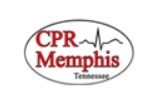9 Things You Must Know About Breast Cancer by Kaitlyn Mezinis
Call Us Now
Get the Best CPR Class in Memphis Today!
9 Things You Must Know About Breast Cancer by Kaitlyn Mezinis
Breast cancer is one of the leading killers among women; loads of women in America know what Breast cancer is, but do they really understand what it all entails? While researching this topic, I found out some points that I feel everyone should know, both women and men. I found this information interesting; I hope you do as well.
- Early detection is the key to prevention. Monthly self-examinations, yearly mammograms starting at the age of 40 or earlier depending on your family history, and perhaps pairing up with a friend to remind one another to complete a monthly self-exam every month could prove to be beneficial to your health.
- Although not as common, Men get Breast cancer as well. In 2013, 2,240 men have been diagnosed with this cancer as compared to 232,340 females. As you can see, Breast cancer for men is rare. That being said, men need to do monthly self-exams as well; just because it’s rare doesn’t mean they shouldn’t be on the lookout.
- There are 2 main types of Breast cancer. The most common form is called ductal carcinoma, this type starts forming in the lining of the milk ducts. The second type of Breast cancer is called, lobular carcinoma. Lobular carcinoma begins forming in the lobules otherwise known as milk glands of the breast.
- People who have the highest risk of obtaining Breast cancer are older women. The average age of being diagnosed with Breast cancer is roughly 61. Women who are younger still have the risk of getting it, but aging women have the highest risk.
- White women are more likely to be diagnosed, but African American women have a higher mortality rate associated with this cancer. About 33 per 100,000 African American women as to 24 per 100,000 white women die of this cancer. I find this shocking, who would have thought!
- One third of breast cancer cases are correlated to being inactive and overweight. Make sure you eat a healthy, well-balanced diet, exercise a minimum but not limited to 30 minutes a day, stay away from fatty foods, maintain a healthy weight, and just try to be conscious of what you take into your body.
- A mammogram is a low energy x-ray to help detect changes in the breast. Mammogram’s help healthcare professionals see if there is any abnormal tissue in the breast. They’re recommended every year after a woman turns 40. If they see something abnormal, they can then act on it and hopefully stop anything becoming something major.
- The staging system that is used to describe the stages of Breast cancer is AJCC/TMN. (T) Stands for the size of the tumor, (N) is used for if the cancer has spread to any lymph node, and (M) stands for metastasis, meaning if the cancer has spread to any other major organs in the body.
- Radiation therapy is a therapy used for breast cancer. Radiation can kill the cancer cells in the breast, chest or underarm, or it can shrink the cells (tumor) before the patient has to go into surgery.
All in all, these are some interesting facts. Women and men need to be aware of breast cancer, women especially, since they are at a higher risk. A woman needs to be healthy, active, and aware of what goes into her body, she needs to give herself self-examinations, and notify a health professional if something seems to be abnormal. Although older women are more at risk, younger women need to understand the risks associated with it as well. Breast cancer is very common, but if and ever a woman is diagnosed with it; she should never have to go through it alone. Having someone there could be the difference maker.
References: http://www.stvincents.ie/dynamic/File/9thingsyoushouldknowaboutbreastcancer.pdf
Call Us Now
Get the Best CPR Class in Memphis Today!
http://bccr.org/31-things-to-know/
http://www.cancer.gov/cancertopics/types/breast
http://www.cancer.org/research/infographicgallery/7mammogramstips
http://www.cancer.org/cancer/breastcancer/overviewguide/breast-cancer-overview-staging
http://www.cancer.org/cancer/breastcancer/overviewguide/breast-cancer-overview-treating-radiation









